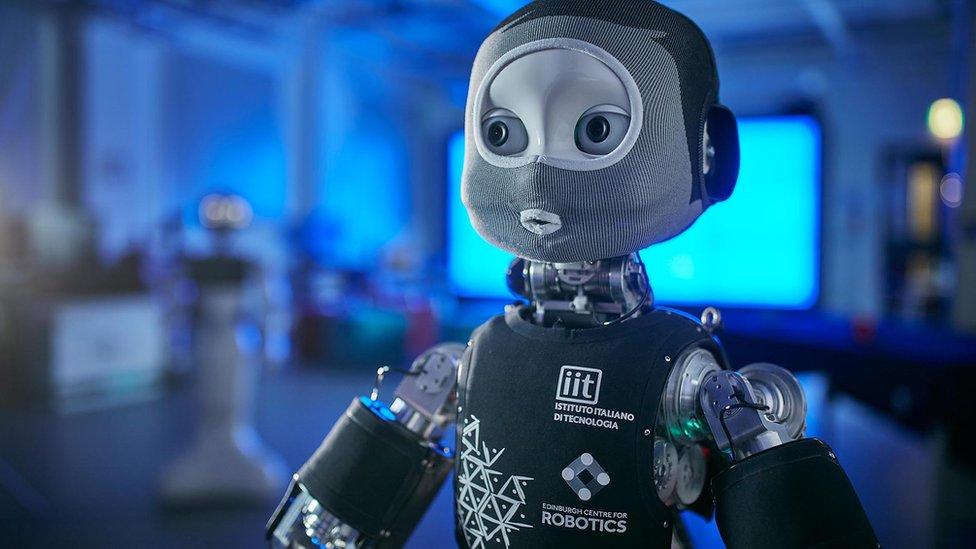Socially intelligent robot helps autistic Somerset pupils
- Published
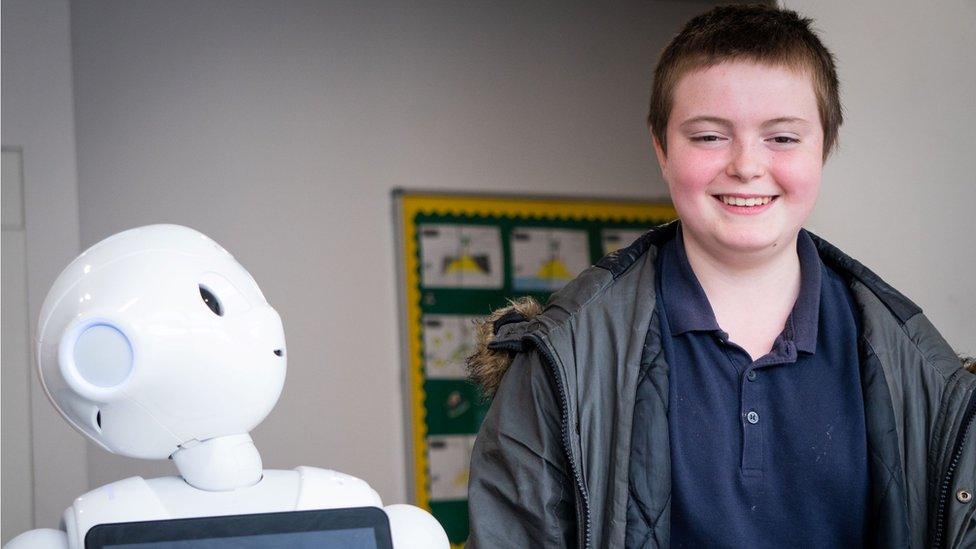
Dr Louis Rice from the department of architecture said: “This project isn’t about replacing people and teaching staff"
A robot has been helping autistic pupils with regulating their emotions in a three-week long research project.
Pepper the robot based at The Mendip School in Somerset has been taking part in social activities designed to help autistic pupils with their wellbeing.
Children at the school have been able to approach the robot for help in the three-week project.
The Mendip School said autistic pupils have now found a new "confidence" to socially interact with others.
The Bristol Robotics lab based at the University of the West of England helped to develop the technology using pupils and teachers input to decide how it would best support students in need.
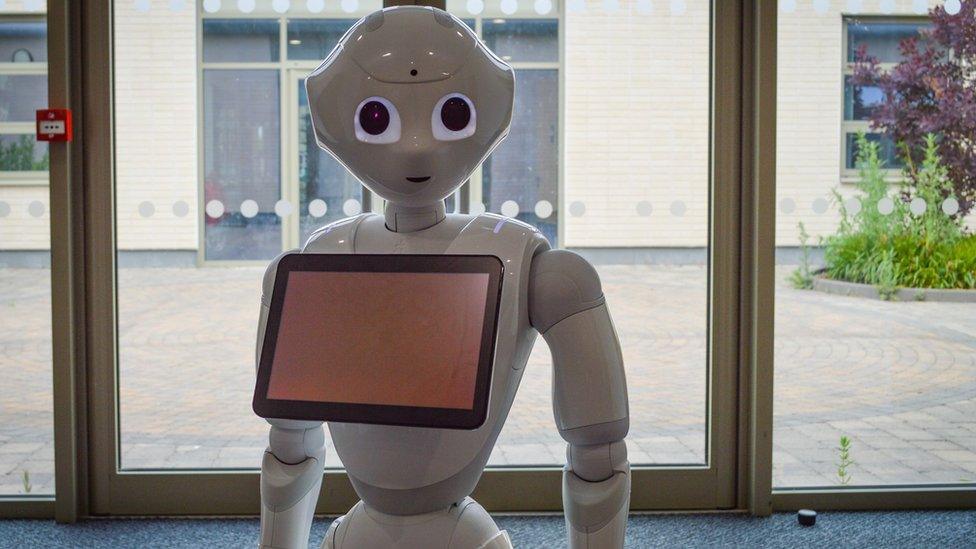
The project is investigating where, when and how the robot can best support autistic pupils and teachers in a school setting
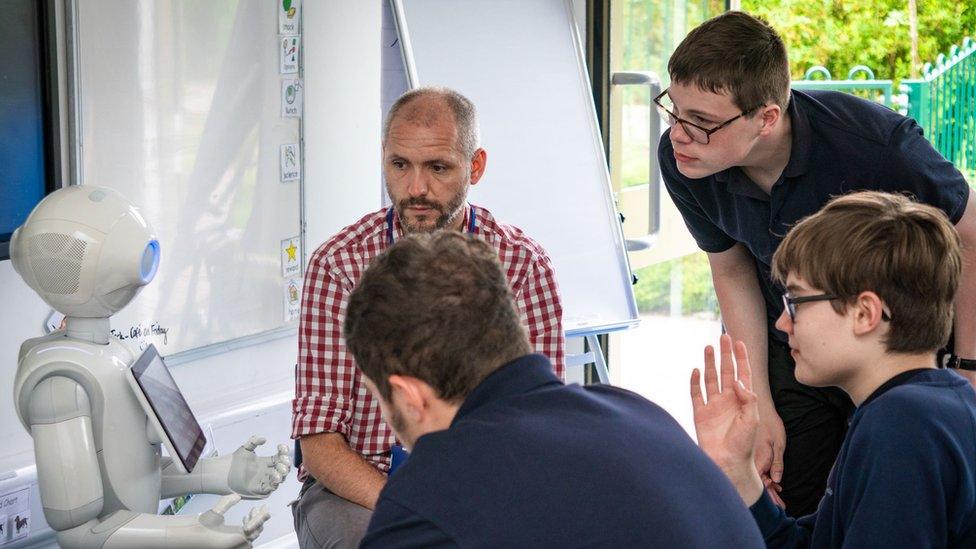
Senior lecturer in Digital Education, Dr Nigel Newbutt, said: "We found that they wanted to engage with the robot in a more social and informal way"
Mendip School's assistant headteacher, Iian Conley, said: ''Since Pepper arrived at the school there has been a lot of dancing and the children have also really enjoyed the robot's jokes.
"Children who wouldn't normally socially interact with others are now choosing to interact with their peers.
"It's great to see students willing to communicate with the robot where they might struggle with adults and children, and to see them opening up their friendship groups.''
Autism spectrum disorder (ASD) - its medical name - is the name for a range of conditions which affect how a person communicates and interacts with the world around them, as well as their interests and behaviour.
It is estimated that about one in every 100 people in the UK is autistic.
'Child-led interactions'
The university's social robotics professor Dr Severin Lemaignan, said the robot engages with autistic children "on their terms".
"The use of robots to support autistic children is not entirely new.
"However, while previous research has focused on teaching skills to children, our autistic participants told us this is not what they actually need. Our approach focuses instead on wellbeing and child-led interactions."
Socially intelligent robots like Pepper cost approximately £20,000, but researchers and the school leadership believe they could be a worthwhile investment in the future.
The full results of the study will be published later in the year.
- Published1 April 2021

- Published22 March 2021
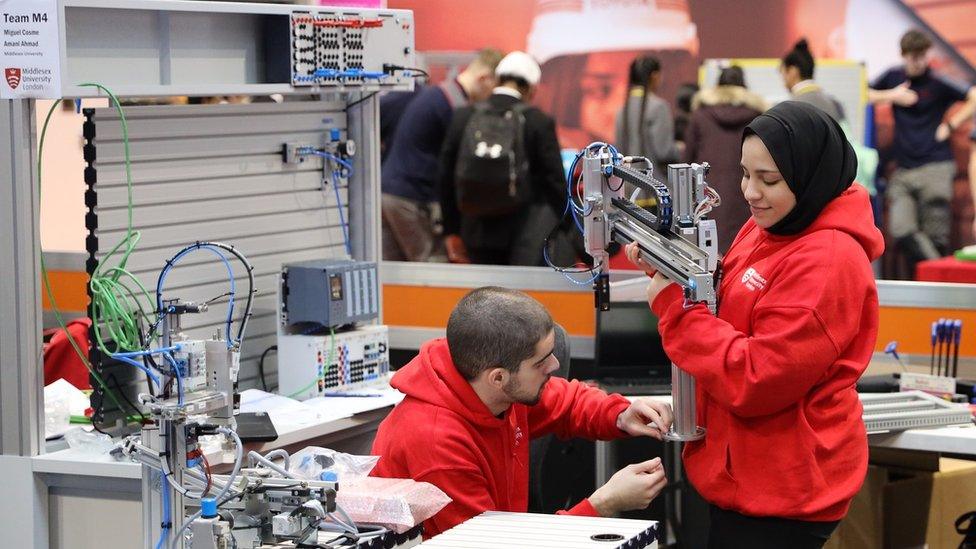
- Published4 March 2021
